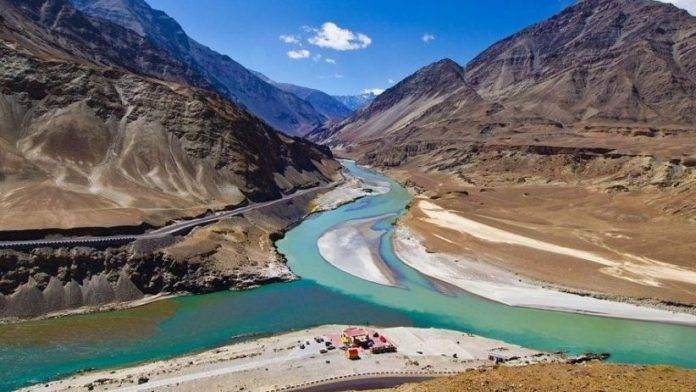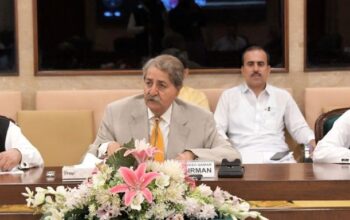By Staff Reporter
ISLAMABAD: Pakistan’s Foreign Office on Saturday slammed Indian Home Minister Amit Shah’s ‘brazen disregard’ for international agreements after he said New Delhi would never restore the Indus Waters Treaty with Islamabad, accusing India of violating international law and setting a ‘dangerous precedent’ that risks destabilizing the region over a vital shared resource.
Shah, in an interview with the Times of India, said New Delhi will never restore the 1960 agreed Indus Waters Treaty with Islamabad, which governs the use of the Indus River system, a lifeline for both nations.
“No, it will never be restored,” he told the newspaper. “We will take water that was flowing to Pakistan to Rajasthan by constructing a canal. Pakistan will be starved of water that it has been getting unjustifiably,” he said, referring to the arid northwestern Indian state.
India put into “abeyance” its participation in the treaty after 26 civilians in occupied Kashmir were killed in last April in what Delhi described as an act of terror. Pakistan has denied involvement in the incident, but the accord remains dormant despite a US brokered ceasefire agreed upon by the two nuclear-armed neighbors last month following their worst fighting in decades.
The treaty, brokered by the World Bank after years of painstaking negotiations, has for more than six decades allocated the Indus system’s waters between the two countries. India controls the eastern rivers, Ravi, Beas, and Sutlej, while Pakistan relies on the western rivers to irrigate 80 percent of its farmland. Despite a history of three wars and near-constant friction since their 1947 partition, the agreement has endured as a rare pillar of cooperation, until now.
In a strongly worded statement, the Foreign Office condemned India’s position. “The statement reflects a brazen disregard for the sanctity of international agreements,” the statement said. “The Indus Waters Treaty is not a political arrangement, but an international treaty with no provision for unilateral action.£
The Foreign Office said India’s “illegal announcement to hold the treaty in abeyance constitutes a clear violation of international law, the provisions of the Treaty itself, and the fundamental principles governing inter-state relations”.
“Such conduct sets a reckless and dangerous precedent, one that undermines the credibility of international agreements and raises serious questions about the reliability and trustworthiness of a state that openly refuses to fulfill its legal obligations.”
The Foreign Office further criticized India, adding that “weaponizing water for political ends is irresponsible and contrary to established norms of responsible state behavior” and asked the New Delhi to “immediately rescind its unilateral and unlawful stance, and restore the full and unhindered implementation of the Indus Waters Treaty.”
“For its part, Pakistan remains firmly committed to the Treaty and will take all necessary measures to protect its legitimate rights and entitlements under it.”
Former foreign minister Bilawal Bhutto Zardari last week framed India’s actions as an existential threat. Speaking to Germany’s DW News, he accused New Delhi of breaching human rights and the United Nations Charter by jeopardizing Pakistan’s water supply. “This isn’t just a right to defense, it’s a matter of survival,” he said. “If we can’t provide drinking water to our people, then it’s our duty as a state to fight for their rights, even if that means going to war.”
Bhutto Zardari emphasized that Pakistan has no appetite for conflict but warned that India’s push to choke off water flows could leave Islamabad with little choice. “If India goes ahead with blocking Pakistan’s water under the Indus Waters Treaty, it may be left with no option but to respond forcefully,” he warned.
Copyright © 2021 Independent Pakistan | All rights reserved




